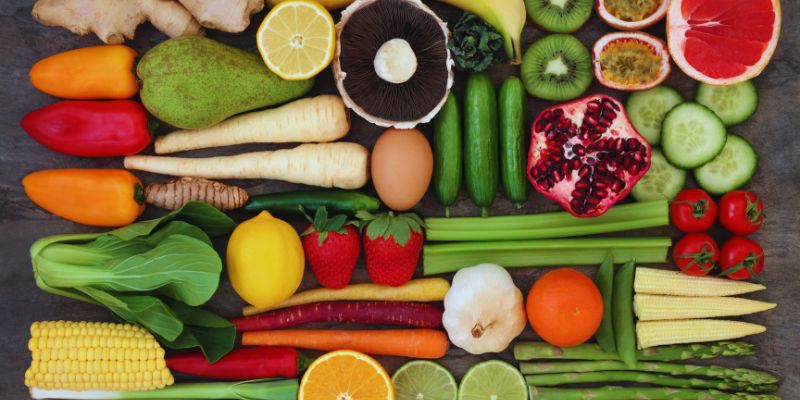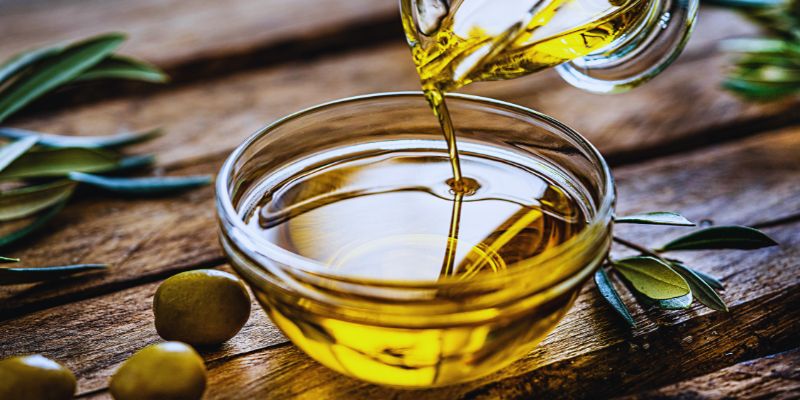Are you on a search to find the popular superfoods to improve your overall health? If yes, you have already landed on the right page. Superfood is a marketing term referring to certain foods that offer various health benefits, nourish your body, and cure all disease symptoms. These foods are nutrient-rich and filled with antioxidant and anti-inflammatory properties.
But remember that no single food can offer all the nutrients needed and the health benefits you want. However, consuming various superfoods that include nutrient-dense fruits and vegetables can have a healthy impact on your health. So, let's dive into the discussion and see some superfoods that can help manage or prevent certain health conditions.

10 Superfoods To Improve Your Health
Here are 10 superfoods that you can easily include in your diet and enjoy various health advantages:
Dark, Leafy Green Vegetables
Dark, green leafy vegetables are a good source of vitamins and nutrients such as vitamins A and C, calcium, folate, zinc, iron, magnesium, fiber, and phytochemicals. What makes dark green leafy vegetables a superfood is that they have the potential to reduce your risk of chronic illnesses, including cardiovascular diseases and type 2 diabetes. They also possess anti-cancer properties because of high levels of anti-inflammatory compounds known as carotenoids. Kale, turnip greens, spinach, collard greens, and Swiss chard are under DGLVs.
Olive Oil
Olive oil is a natural oil extracted from the olives of olive trees and is one of the main components of the Mediterranean diet. Olive oil is a good source of polyphenols, vitamin E, and monounsaturated fatty acids. Adding olive oil to your diet may reduce inflammation and your risk of related illnesses such as diabetes and heart disease. Olive oil also has antioxidant properties as it contains vitamins E and K, which can protect you against oxidative stress, preventing cellular damage.

Nuts And Seeds
Nuts and seeds are rich in vegetarian protein, fiber, and heart-healthy fats such as monounsaturated fats. They contain anti-inflammatory properties, protecting you against diabetes and cardiovascular diseases. Nuts and seeds are also rich in antioxidant properties, protecting cell damage from oxidative stress. Some standard nuts include pecans, almonds, pistachios, Brazil nuts, walnuts, hazelnuts, cashews, and macadamia nuts. Some seeds include pumpkin seeds, sunflower seeds, chia seeds, and flaxseeds. Peanuts are technically legumes but are often consumed as nuts.
Legumes
Legumes include soy, kidney, black, red, garbanzo beans, peanuts, peas, lentils, and alfalfa. They are known as superfoods because they are packed with nutrients and are essential in managing and preventing several diseases. Legumes are a rich source of B vitamins and minerals, including iron, calcium, potassium, fiber, folate, and plant-based protein. Legumes offer many health benefits, including managing type 2 diabetes and reducing cholesterol and blood pressure.
Kefir
Kefir is a fermented beverage mostly made from milk. It is similar to yogurt but has a thinner consistency and contains potassium, protein, B vitamins, calcium, and more probiotics than yogurt. Fermented and rich probiotic foods like kefir offer many health benefits, including lowered blood pressure, reduced cholesterol, anti-inflammatory properties, and improved digestion. Due to the bacteria's lactose fermentation, people with lactose intolerance can tolerate it well. It can also be made from coconut milk.
Berries
Berries are considered a superfood because they contain vitamins, minerals, and fiber. It also contains antioxidant properties. Besides its richness in vitamins and minerals, its high antioxidant properties are the ones that make berries special. Berries are associated with a decreased risk of cancer, heart disease, and other inflammatory health conditions. Berries may also be used to treat several digestive issues and immune-related disorders. Some common berries are strawberries, blueberries, blackberries, raspberries, and cranberries.
Ginger
Ginger comes from the root of a flowering plant and has been used as a flavor enhancer for medical purposes, especially in Southeast Asia. Ginger contains several antioxidants, such as gingerol, which may be responsible for various reported health benefits linked to ginger. Ginger may be useful for treating nausea and reducing pain from acute and chronic inflammatory conditions and illnesses like heart disease and cancer. In many countries, ginger tea is consumed to cure the flu, help with weight loss, and improve overall health.
Salmon
Salmon is a nutritious fish with B vitamins, healthy fats, potassium, protein, and selenium. It's one of the most significant sources of omega-3 fatty acids, known for diverse health benefits, such as decreasing inflammation. Adding salmon to your diet may also lower your risk of heart disease and diabetes. A drawback of salmon and other types of seafood is that they are most likely contaminated with heavy metals and other environmental pollutants so that you can limit your consumption to one or two servings per week.
Seaweed
Seaweed is the common name for species of plants that grow in the ocean, lakes, rivers, and other water bodies. Seaweed is a sea vegetable that isn't rich and is primarily a part of Asian cuisine. It's becoming a part of the cuisine in other countries as well. Seaweed contains many nutrients, including iodine, vitamin K, folate, and fiber. Sea vegetables are a superfood because they source unique bioactive compounds typically absent in land vegetables.
Mushrooms
Some edible mushrooms include portobello, button, crimini, shiitake, and oyster mushrooms. Mushrooms contain potassium, vitamin A, fiber, and several antioxidants. Their nutritive content varies depending on the type of mushroom. Due to their unique antioxidant properties, mushrooms may also play an important role in decreasing inflammation and preventing various cancers. Another reason mushrooms are a superfood is that agricultural waste products are used to grow them. It makes mushrooms an ecological component of our healthy food system.
Conclusion:
Superfoods have high nutritional benefits but are low in calories. They are packed with antioxidants, minerals, and vitamins. It can be tricky to decide which superfoods to include in your diet. It requires a lot of effort to search and find out what your diet lacks and what to add to compensate for that nutritional value. Everyday superfoods include dark, leafy green vegetables, olive oil, nuts and seeds, legumes, kefir, berries, ginger, salmon, seaweed, and mushrooms. Add these foods to your diet and feel the difference in energy and health.












